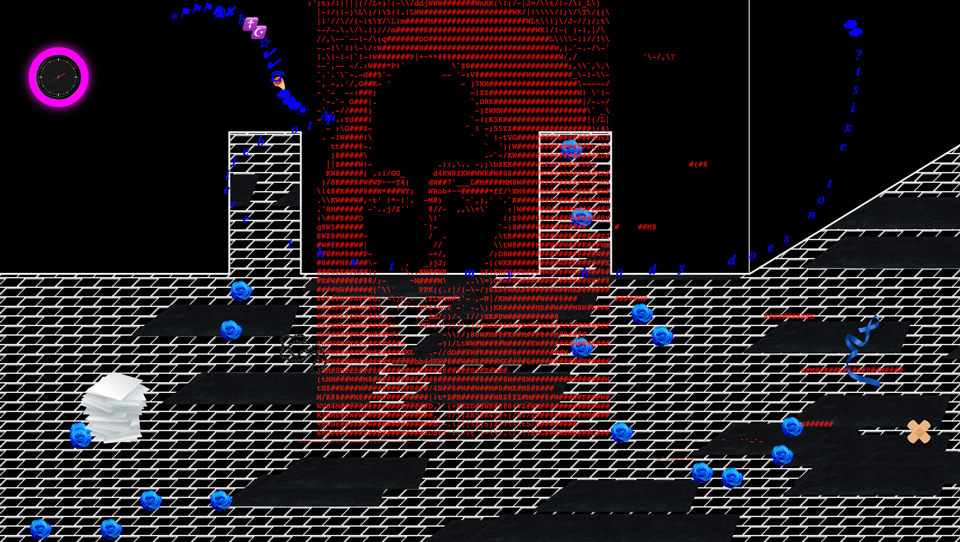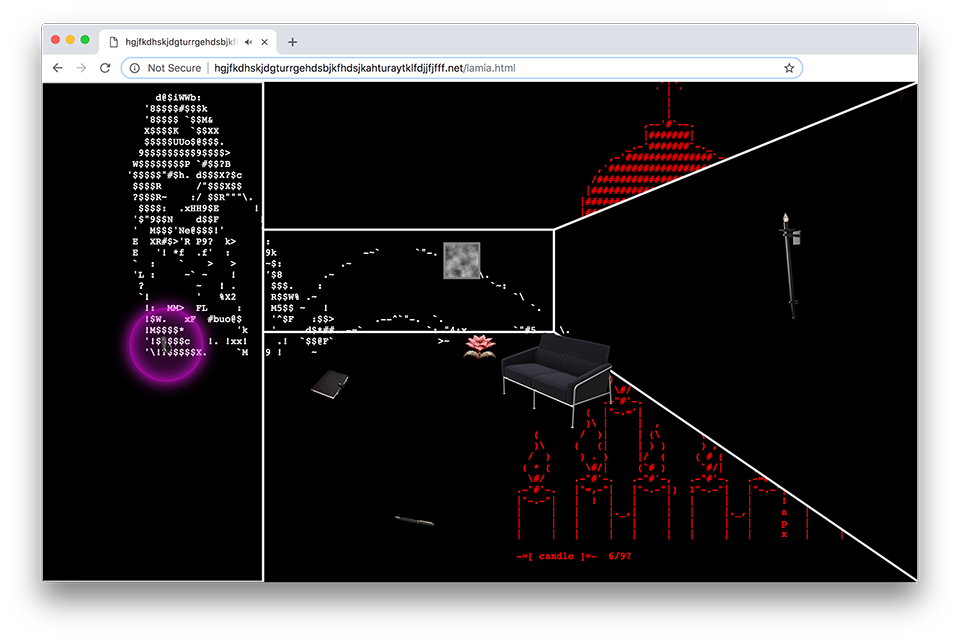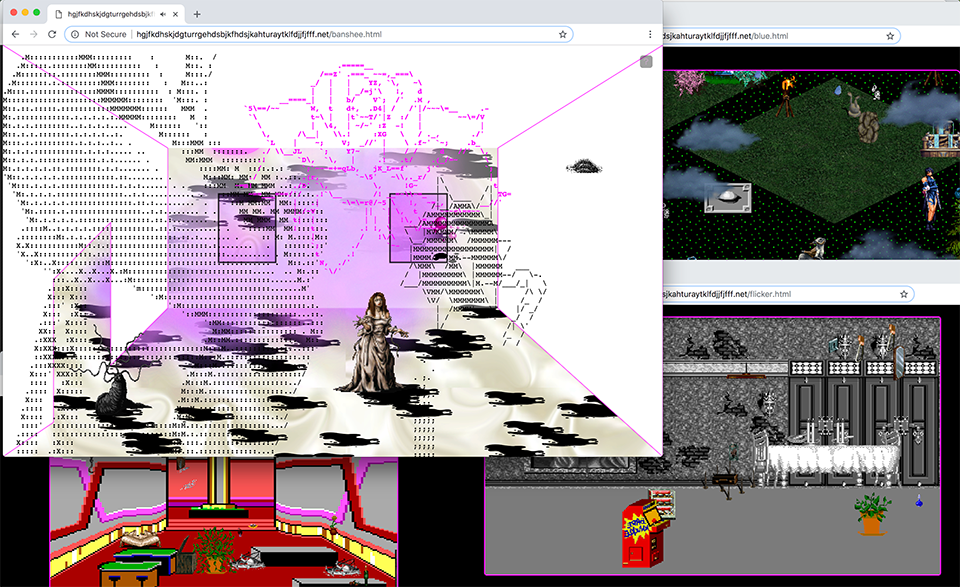Black Room
by
Cassie McQuater
Browser/Free or donate here/~1 hour
"Hello! Black Room is a game about your internet browser."
This one has been out for about a year, but I only heard of it recently when it was recommended by author and musician Liz Ryerson.
Black Room presents itself in three distinct ways: as a personal narrative about falling asleep, as a meditation on the web browser, and as a 'feminist dungeon crawler'. These three themes do overlap, and at the center of the Venn diagram is a subtle and opaque experience that is more ambitious and larger than any other browser game I can remember playing.

The narrative conceit that opens the game is the idea that the titular 'black room' is a meditative technique, passed to the author by her mother: imagine a room and fill it with furniture until you fall asleep. The objects in the room begin as furniture but it soons become clear they are framed more broadly as thoughts or symbols, and as you progress through the game the room becomes more fragmented, cluttered and dreamlike, perhaps as the narrator falls into an unsettled, anxious sleep. The recurring visual theme is the image of women from fiction – particularly, from the digital forms of ascii art, GIFs, and videogame pixel art characters – suggesting that in our connected digital lives we are trapped in a waking semiotic fever-dream, where cultural symbols are permanently burned into our retinas to be paraded endlessly behind our eyelids while we sleep.

The author also presents Black Room as a 'game about your internet browser', an idea which is not only explored through the recycled digital ephemera that populates it, but in formal ways through the browser itself. It (explicitly) asks you to resize your browser window to change your view; it pops open new windows with new modes of interaction, and splits your attention and sense of embodiment in the space, building that particular sense of anxiety that is common both to troubled dreams and to browsers with too many tabs left open. Eventually you feel overwhelmed by the threads of too many ideas and too many tasks, your desktop littered with open windows, your computer's fan running at full speed.

There's a good writeup of Black Room on Hyperallergic by Andrew Klein, but I haven't really seen anyone discussing the feminist themes in it, probably because to really talk about it in depth would spoil some of the surprise, and – after all – the whole point of this blog is to convince you to actually play the games I recommend rather than to predigest them for you. But I suppose it will not spoil anything to say that Black Room gradually warms up to a particular idea, which Judith Plaskow famously pioneered in 1972, and which has been explored in other influential feminist games. Black Room, I think, explores a dream that is not nostalgic but darkly utopian, like the work of the first surrealist painters.
By the way: there's a growing breeze of interesting utopian work being done in games right now, especially by younger designers. From Colestia's overtly political games about urban space, to subtly optimistic things like solimporta's Levedad, to specific personal utopias like One Night Hot Springs. In a medium that started with the nihilistic pessimism of Missile Command and Robotron — and stayed there for decades — that seems like some kind of turning point.
